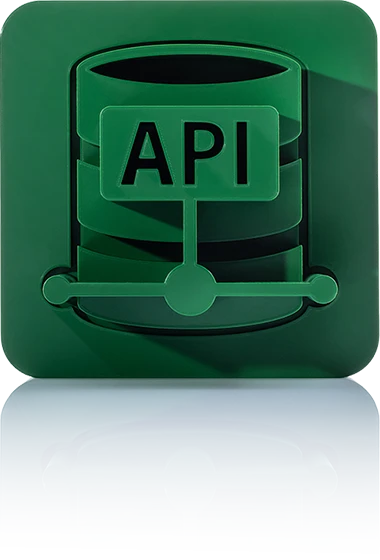API Server
Provide Data for Third-Party Systems as a REST Service

Advantages API server
Function Overview
REST interface
The API server provides a REST interface that can be used by third-party applications. The result is transmitted in JSON format. The REST services are configured based on customer-specific requirements and can be extended flexibly.
Architecture
Reverse proxy scenario
Incoming requests are accepted by a reverse proxy, filtered and forwarded to the API server.
Failover/load balancing scenario
Both the database server and the API server can be designed redundantly. In the event of failure or high loads, access is automatically redirected or distributed.
Content Delivery Network (CDN)
Data query
Advantages compared to the XML interface
Up-to-dateness
Third-party systems can access the database directly via the API server at any time.
Flexibility
The data objects are configured according to the customer-specific use case so that the development effort required to integrate the data into the third-party system is minimal. The API server can be used for different applications and several external systems.
Openness
With the API server, all database data can be independently queried and analyzed by developers.
Authentication
Access to the API can be restricted using authentication tokens.
Protocols
Data can be transferred using either HTTP or HTTPS.
Error handling
API services can be checked more easily and immediately, as access is direct and the amount of data is more manageable.
